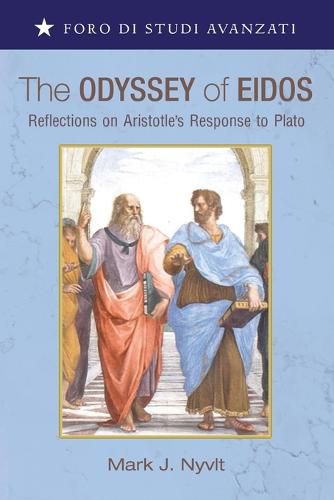Readings Newsletter
Become a Readings Member to make your shopping experience even easier.
Sign in or sign up for free!
You’re not far away from qualifying for FREE standard shipping within Australia
You’ve qualified for FREE standard shipping within Australia
The cart is loading…






This title is printed to order. This book may have been self-published. If so, we cannot guarantee the quality of the content. In the main most books will have gone through the editing process however some may not. We therefore suggest that you be aware of this before ordering this book. If in doubt check either the author or publisher’s details as we are unable to accept any returns unless they are faulty. Please contact us if you have any questions.
Aristotle sets the horizons of our inquiry: What is it when we say we know something? And is the object of knowledge a universal or particular [tode ti] object? Aristotle's critique of Plato's theory of form/Forms in light of his notion of actuality has generated a variety of topics that frame our inquiry: "Understanding Eidos as Form in the Works of Aristotle as Plato's Critical Student"; "Aristotle on Plato's Forms as Causes"; "Notes on the Relationship between Plato's Parmenides and Aristotle's Metaphysics Alpha"; "'Separate' and 'Inactive'? Aristotle's Most Challenging Critique of Plato's 'Forms'"; "Too Much Unity in a City Is Destructive of the City: Aristotle against Plato's Unification Project of the Polis"; "Aristotle on the Soul as Actuality"; "Delphic Piety in the De Anima of Alexander of Aphrodisias"; "Aristotle and Plotinus: Act and Potency and the Two Acts"; and "Al-Farabion Habit and Imagination." Here, the Peripatetic readings of form and actuality are parsed from the precipice of historical, analytic, and continental approaches to the mind/language/object problem, with advocacy of the importance of Aristotle's contribution to this inquiry for the present age.
$9.00 standard shipping within Australia
FREE standard shipping within Australia for orders over $100.00
Express & International shipping calculated at checkout
This title is printed to order. This book may have been self-published. If so, we cannot guarantee the quality of the content. In the main most books will have gone through the editing process however some may not. We therefore suggest that you be aware of this before ordering this book. If in doubt check either the author or publisher’s details as we are unable to accept any returns unless they are faulty. Please contact us if you have any questions.
Aristotle sets the horizons of our inquiry: What is it when we say we know something? And is the object of knowledge a universal or particular [tode ti] object? Aristotle's critique of Plato's theory of form/Forms in light of his notion of actuality has generated a variety of topics that frame our inquiry: "Understanding Eidos as Form in the Works of Aristotle as Plato's Critical Student"; "Aristotle on Plato's Forms as Causes"; "Notes on the Relationship between Plato's Parmenides and Aristotle's Metaphysics Alpha"; "'Separate' and 'Inactive'? Aristotle's Most Challenging Critique of Plato's 'Forms'"; "Too Much Unity in a City Is Destructive of the City: Aristotle against Plato's Unification Project of the Polis"; "Aristotle on the Soul as Actuality"; "Delphic Piety in the De Anima of Alexander of Aphrodisias"; "Aristotle and Plotinus: Act and Potency and the Two Acts"; and "Al-Farabion Habit and Imagination." Here, the Peripatetic readings of form and actuality are parsed from the precipice of historical, analytic, and continental approaches to the mind/language/object problem, with advocacy of the importance of Aristotle's contribution to this inquiry for the present age.